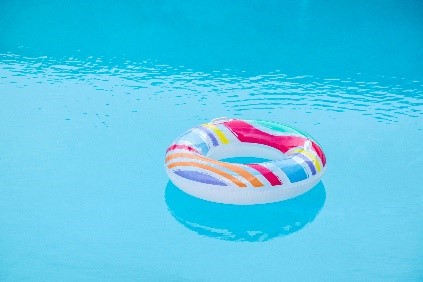How to Prevent Drownings this Summer
At Home with UAEX
Learn from the best Extension Educators on being at home with UAEX!
How to Prevent Drownings this Summer

by Original content: Amy Monk ~ Adapted for blog: Katie Cullum
Children need close and constant supervision in or around water. Designate a responsible adult to supervise closely and constantly when children are in or near water (including bathtubs). Adults watching kids in or near water should avoid distracting activities like reading, using the phone, and consuming alcohol or drugs, because drowning happens quickly and quietly.
Swimming Safety Tips
- Swimming lessons reduce the risk of drowning. Taking part in informal swimming lessons
reduces the risk of drowning even in children as young as 1 to 4 years old.
- After swim time is over, shut & lock doors that give access to water. You should also
learn about any risks when visiting another home or unfamiliar location.
- Learn CPR. CPR performed by bystanders has been shown to save lives. The more quickly
CPR is started, the better the chance of improved outcomes.
- Life jackets reduce risk. wear a Coast Guard approved lifejacket, appropriate for
your size. A life jacket should be “comfortably snug.”
- Do not rely on air-filled or foam pool toys, these were not designed as safety devices.
- Know the risks. Lakes, rivers, & oceans have hazards such as currents, waves, rocks
or vegetation, and limited visibility.
- Check the weather forecast before activities around water. Local weather conditions
can change quickly and cause dangerous flash floods, strong winds, and thunderstorms
with lightning strikes.
- Avoid drinking alcohol before or during swimming, boating, or other water activities.
Alcohol impairs judgment, balance, and coordination.
- Always swim with a buddy. Choose swimming sites that have lifeguards when possible.
- Do not try to hold your breath underwater for long periods of time. This can cause you to pass out and drown. You can learn more about this and other water safety issues from the CDC website.
Check out our news story for more tips!
Sources: https://www.cdc.gov/drowning/prevention/index.html
